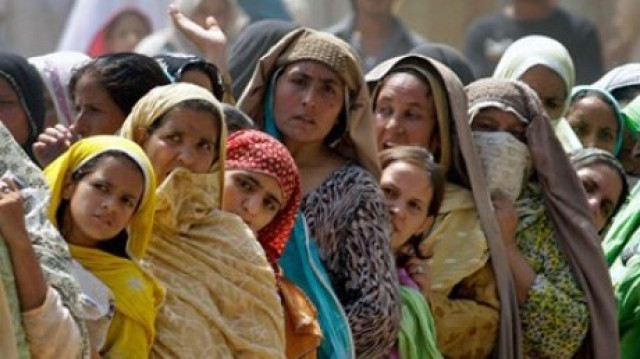With 50% of Pakistan’s population comprising women, major challenges arise to improve their economic and social conditions. According to the Pakistan Conflict Monitor, warning bells for the status of the maternal health are growing louder as the MDGs are unlikely to be met by 2015. There are several reasons for this, some likely to be solved with a proactive approach and some very grave and apparently insurmountable.
Dr Sadiqa Jaffery, an untiring crusader in the field of maternal health in Pakistan is disappointed by the lack of progress in reducing maternal mortality ratio (276/100,000 live births) in spite of the many initiatives taken by the governments and international donors in the past. She clearly calls for taking more active policy initiatives to improve the pathetic situation where Pakistan is the lowest performer in South Asia and its improvement is even less than 1%.
There have been some clear efforts to prioritise improvement in maternal health services such as trained and skilled birth attendants (SBAs), Community Midwives, Emergency Obstetric programs (EMOC), improved antenatal care etc. The missing link is the inclusion or co-ordination of the private sector in major health policy planning and monitoring. According to a study conducted by Dr Nasir Farooq, Huma Jadoon and others at Ayub Medical College , Abbottabad, there are no systemic methods to collect data on maternal health especially MMR and the discrepancy and under reporting at district level is glaring. Therefore, planning and policy decisions for the future action are flawed in the first place.
The major causes of maternal death are related to pregnancy such as haemorrhage, septicemia, eclampsia, obstructed labor. The main issues are lack of availability of skilled birth attendants, lack of hospital services, lack of antenatal and postnatal care, and unavailability of transport to reach a district hospital in time.
Many initiatives including those by Paiman (http://www.paiman.org/ ) are being taken to improve the Pakistani mother’s health. They take initiatives and build capacity of existing programs and also work with communities. Their major effort has been to increase the proportion of live births in Pakistan with births assisted by skilled birth attendants.
The gravity of the situation increases with large areas of Pakistan entering conflict zones where non-availability of skilled birth attendants and lack of EMOC and district hospital facilities will be further augmented by no-go areas of conflict adding to the decrease in indicators for improvement. Additional problems are displacement of large populations and their residing in temporary shelter where no facilities were initially available but PAIMAN has established birth centers where antenatal, postnatal care is provided in addition to deliveries.
As more funds are diverted towards armed conflict management as the recent cut in health budget shows, maternal health improvement will suffer. The priority of all stake holders now should be to address the state of maternal health in the perspective of conflict resolution and address the needs and concerns on an urgent basis.
Warning bells toll for maternal health in Pakistan



COMMENTS
Comments are moderated and generally will be posted if they are on-topic and not abusive.
For more information, please see our Comments FAQ